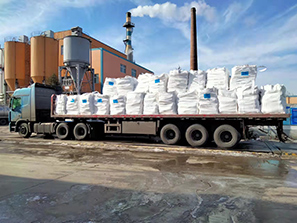序章
Sodium formate, a versatile chemical compound with diverse applications, requires careful handling to ensure the safety of individuals, the environment, and the facilities where it is used. This article delves into the intricate safety considerations associated with handling sodium formate, exploring its potential hazards, safety measures, protective equipment, emergency procedures, and its role in maintaining a secure working environment.
Understanding Sodium Formate and Safety

ギ酸ナトリウムとは何?
ギ酸ナトリウム (HCOONa) is a sodium salt derived from formic acid (HCOOH), known for its water solubility and various applications. While versatile, it’s essential to handle it with caution due to potential risks.
Potential Hazards of Sodium Formate
1. Skin and Eye Irritation
Direct contact with sodium formate can cause skin irritation, redness, and even chemical burns. Eye contact may lead to severe irritation and damage.
2. Inhalation Risks
Inhalation of sodium formate dust or aerosols can irritate the respiratory tract and cause discomfort.
3. Ingestion Dangers
Ingesting ギ酸ナトリウム can lead to gastrointestinal distress, nausea, vomiting, and other adverse effects.
4. Combustion Hazards
Sodium formate can decompose under certain conditions, releasing toxic gases and contributing to fire hazards.
Safety Measures When Handling Sodium Formate
1. Personal Protective Equipment (PPE)
Wear appropriate PPE, including chemical-resistant gloves, safety goggles, and protective clothing, to minimize skin and eye exposure.
2. Ventilation
Work in well-ventilated areas or use local exhaust ventilation to prevent inhalation of airborne particles or vapors.
3. Handling Precautions
Avoid direct skin contact by using tools and utensils when handling sodium formate. Avoid creating dust or aerosols that could be inhaled.
4. Storage
Store ギ酸ナトリウム in a cool, dry, and well-ventilated area, away from incompatible materials, such as strong acids or oxidizers.
Emergency Procedures
1. Eye Contact
In case of eye contact, immediately flush eyes with water for at least 15 minutes. Seek medical attention if irritation persists.
2. Skin Contact
If sodium formate comes into contact with the skin, wash the affected area thoroughly with water and soap. Seek medical attention for severe cases.
3. Inhalation
If inhalation occurs, move to a well-ventilated area. If symptoms persist, seek medical attention.
4. Ingestion
If sodium formate is ingested, do not induce vomiting. Drink water or milk and seek medical attention immediately.
環境への配慮
1. Spill Management
In case of a spill, contain and clean it up using appropriate absorbent materials. Dispose of the waste according to local regulations.
2. Avoiding Contamination
Prevent sodium formate from entering waterways, soil, or drains to avoid environmental contamination.
FAQ about Safety When Handling Sodium Formate
Q1: Is sodium formate toxic to aquatic life?
A1: Sodium formate can have a negative impact on aquatic life if it enters water bodies. It’s essential to prevent its release into the environment.
Q2: Can sodium formate fumes be harmful?
A2: Inhalation of sodium formate fumes can cause respiratory irritation. Adequate ventilation and proper respiratory protection are crucial when working with the compound.
Q3: How can sodium formate decomposition be prevented?
A3: Avoid exposure to high temperatures or conditions that may trigger decomposition. Store and handle sodium formate in accordance with safety guidelines.
Q4: Are there specific disposal requirements for sodium formate waste?
A4: Yes, sodium formate waste should be disposed of according to local regulations and guidelines for hazardous waste disposal.
結論
Handling sodium formate requires a thorough understanding of potential hazards and the implementation of stringent safety measures. From using personal protective equipment to practicing proper spill management and emergency procedures, ensuring the safety of individuals, the environment, and facilities is paramount. By following these safety considerations, sodium formate can be utilized effectively in various applications while minimizing risks and promoting a secure working environment.


